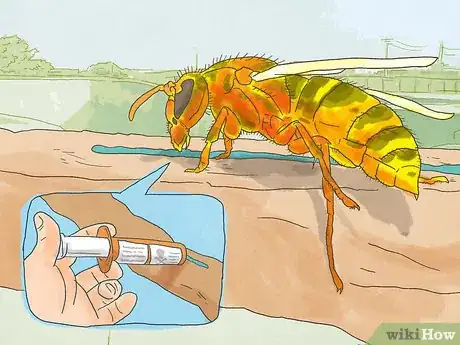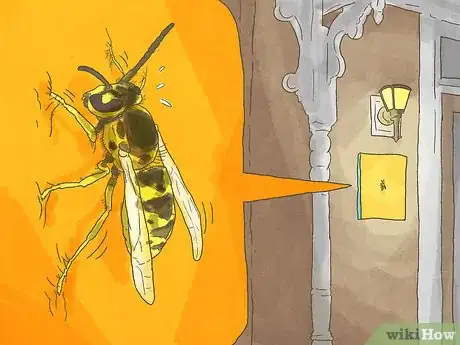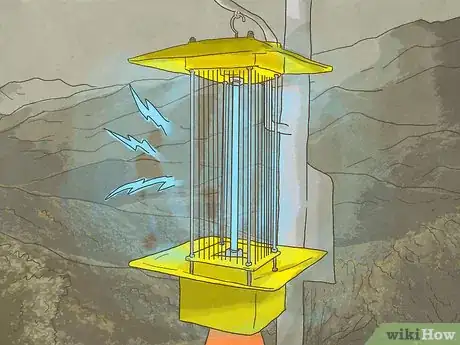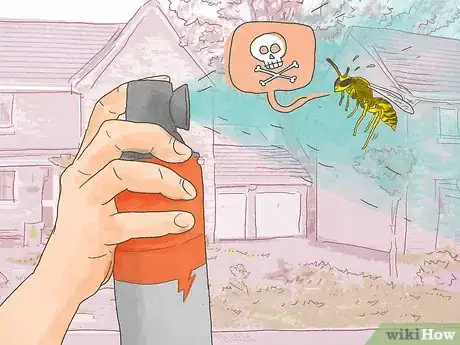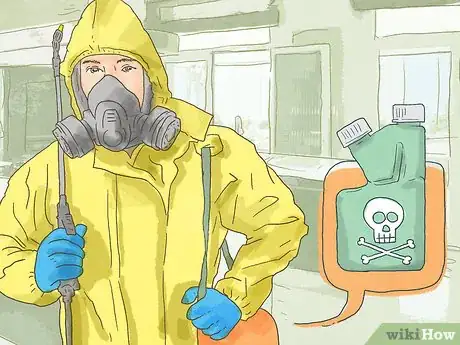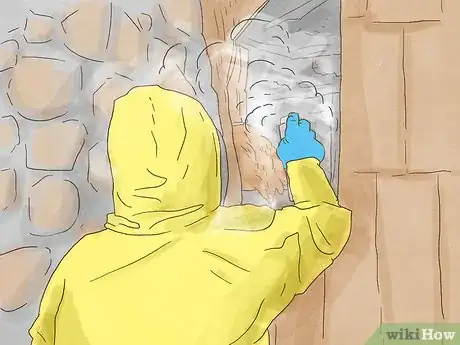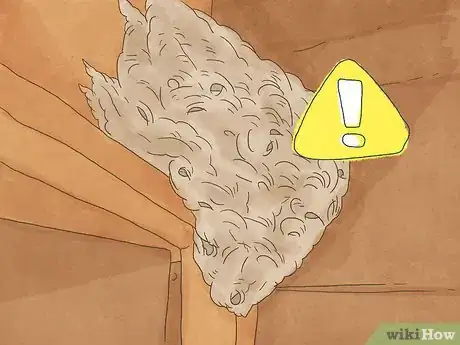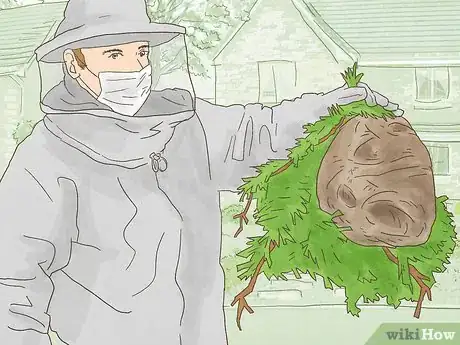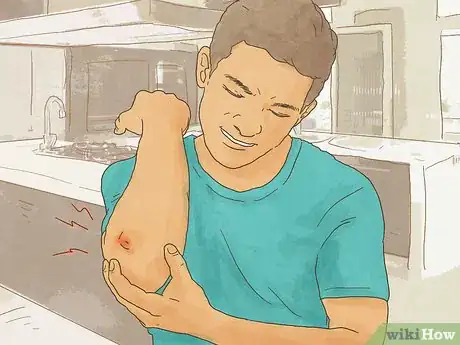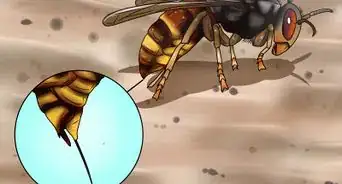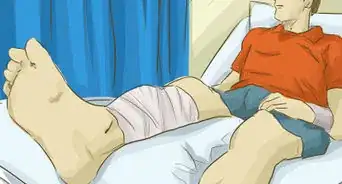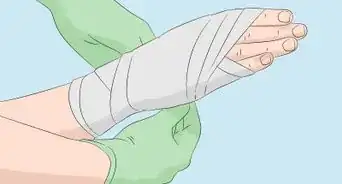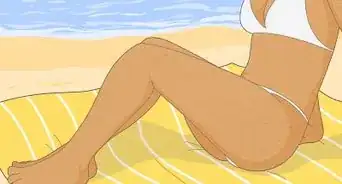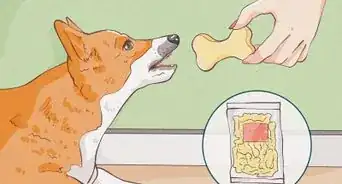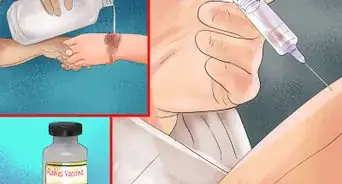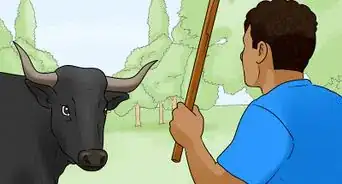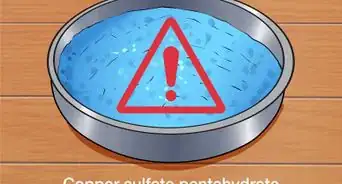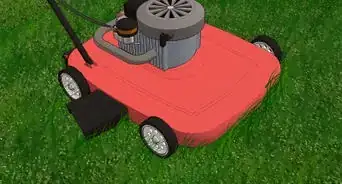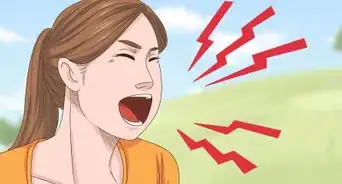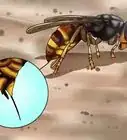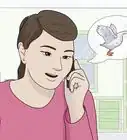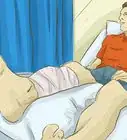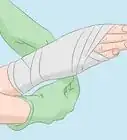X
This article was co-authored by Scott McCombe. Scott McCombe is the CEO of Summit Environmental Solutions (SES), a family-owned local pest solutions, animal control, and home insulation company based in Northern Virginia. Founded in 1991, SES has an A+ rating with the Better Business Bureau and has been awarded “Top Rated Professional,” and “Elite Service Award" by HomeAdvisor.
This article has been viewed 78,629 times.
European hornets can cause damage to plants and shrubbery in your yard. If you have an infestation, how you deal with it depends on the severity and whether or not you've located a nest. Try traps and sprays and, if all else fails, hire professional assistance.
Steps
Method 1
Method 1 of 3:
Using Traps
-
1Use bait. Certain gels and baits, when transported to the nest, serve to poison and kill European hornets. This can be an effective means of pest control.
- Honeydew gel is an effective means to poison European hornets. It can be purchased from most hardware stores or greenhouses.[1]
- You can leave honeydew gel on shrubs and trees where you see hornets gather. Once it is carried back into the hornet nest, it will cause hornets to get sick and die. Sometimes the whole nest dies and other times a few hornets die, signaling dangers and causing the hive to navigate elsewhere.[2]
- Honeydew gel may take a few days to work properly. If you do not see a reduction in the infestation in a week, you might want to try other means.[3]
-
2Invest in glue traps.[4] Glueboards are sticky paper boards you can attach to the siding of your home in areas where hornets congregate. Try to leave the boards around light, as hornets are attracted to bright lights as it makes hunting easier. When hornets fly into glueboards, they become trapped and eventually die. This can be an effective means to get rid of a small infestation where the nest itself is not near or in your home.[5]Advertisement
-
3Try a light trap. Hornets are attracted to light, especially at night when they're still active.[6] A light trap can attract hornets to a large glowing light or orb and then kill them via electrocution.
- European hornets are stronger than moths and other nighttime pests so you'll need a strong light trap. Look for something of at least 110 voltage.
- In order for the light trap to work, you'll need to turn off other nighttime lights in your yard so the hornets are solely attracted to your trap.[7]
Advertisement
Method 2
Method 2 of 3:
Trying Sprays
-
1Try cypermethrin. If hornets frequently congregate your home, a bug spray called cypermethrin can be used. You use this spray by dousing the siding of your home and light fixtures. It does not kill wasps, but does repel them. If a nest is not near your home, cypermethrin can be a good way to keep wasps from bothering you. It is generally not toxic to people or animals, but it can cause indigestion for family pets, so keep it out of reach of dogs and cats. You can find this product at most greenhouses or hardware stores.[8]
-
2Purchase a liquid insecticide with the active ingredient Thiamethoxam (such as Optigard Flex). Insecticides are sprays that works much like honeydew. They do not kill pests on contact but poison the colony when accidentally transported by one or two wasps back to the nest. If you suspect a hornet nest is close by, consider an anti-gel bait.
- Spray the insecticide you purchased, following the directions on the container, in areas where you've seen hornets. Areas like house siding, lights, and plants are optimal. With luck, a hornet should land on one of these places and accidentally bring a dosage of the gel back to the nest.[9]
- Usually, the colony is contaminated within 3 to 5 days. At this point, the hornets will either die off or abandon their current nest. If you do not know where a suspected hornet's nest is, insecticides can be an effective treatment option.[10]
-
3Use phantom aerosol. Phantom aerosol is a spray that works on impact. If you've located the nest, spraying aerosol around the area should effectively kill the hornets. However, be careful. You may want to contact an exterminator instead as you do not want to risk getting stung. Keep in mind that phantom aerosol should not be used on living plants.[11]
Advertisement
Method 3
Method 3 of 3:
Hiring Professional Help
-
1Recognize a hornet's nest. If you find a nest in your home or near your home, you need to call an exterminator.[12] It can be very difficult and even dangerous to remove a nest in your home without professional assistance.
- Hornet's nests are usually found in covered areas. In houses, they'll likely be tucked in or under a drawer or cabinet, in the eaves of the house, or in attacks Outdoors, they tend to be found in treetops.[13]
- Hornet's nests are made with papery substances derived from saliva and bits of wood pulp. Hornet's nests get bigger as the colony grows and can even reach the size of a basketball net.[14]
-
2Contact an exterminator or pest control. If you find a nest near your home, immediately contact pest control or an exterminator. You should do this as soon as possible. If you cannot afford a professional exterminator, pest control can generally do the job for free as it's a safety concern.[15]
-
3Take safety precautions. Unlike bees, hornets stingers do not fall off upon impact. They can sting over and over again, making them dangerous in large groups. While waiting for the nest to be safely removed, take certain precautions.
- Stay away from the nest. Keep pets and children away as well.
- Watch for signs of allergic reaction, like redness and swelling, if you get stung. Any signs of an allergic reaction should be evaluated by a doctor as soon as possible.[16]
Advertisement
Expert Q&A
Did you know you can get expert answers for this article?
Unlock expert answers by supporting wikiHow
-
QuestionHow do you kill a European hornet?
 Scott McCombeScott McCombe is the CEO of Summit Environmental Solutions (SES), a family-owned local pest solutions, animal control, and home insulation company based in Northern Virginia. Founded in 1991, SES has an A+ rating with the Better Business Bureau and has been awarded “Top Rated Professional,” and “Elite Service Award" by HomeAdvisor.
Scott McCombeScott McCombe is the CEO of Summit Environmental Solutions (SES), a family-owned local pest solutions, animal control, and home insulation company based in Northern Virginia. Founded in 1991, SES has an A+ rating with the Better Business Bureau and has been awarded “Top Rated Professional,” and “Elite Service Award" by HomeAdvisor.
Pest Control Specialist
Advertisement
Warnings
- Stay away from nests when possible. Hornet stings are venomous and multiple stings can cause serious allergic reactions and even death.⧼thumbs_response⧽
Advertisement
References
- ↑ http://www.idph.state.il.us/envhealth/ipm/Guidelines_Pest_Stratagies.pdf
- ↑ http://www.idph.state.il.us/envhealth/ipm/Guidelines_Pest_Stratagies.pdf
- ↑ http://www.idph.state.il.us/envhealth/ipm/Guidelines_Pest_Stratagies.pdf
- ↑ Scott McCombe. Pest Control Specialist. Expert Interview. 19 November 2019.
- ↑ http://www.clemson.edu/cafls/departments/esps/factsheets/medvet/european_hornet_mv16.html
- ↑ Scott McCombe. Pest Control Specialist. Expert Interview. 19 November 2019.
- ↑ http://www.clemson.edu/cafls/departments/esps/factsheets/medvet/european_hornet_mv16.html
- ↑ http://www.pestworld.org/pest-guide/stinging-insects/european-hornet/
- ↑ http://www.pestworld.org/pest-guide/stinging-insects/european-hornet/
- ↑ http://www.pestworld.org/pest-guide/stinging-insects/european-hornet/
- ↑ http://www.clemson.edu/cafls/departments/esps/factsheets/medvet/european_hornet_mv16.html
- ↑ Scott McCombe. Pest Control Specialist. Expert Interview. 19 November 2019.
- ↑ http://www.clemson.edu/cafls/departments/esps/factsheets/medvet/european_hornet_mv16.html
- ↑ http://www.clemson.edu/cafls/departments/esps/factsheets/medvet/european_hornet_mv16.html
- ↑ http://www.clemson.edu/cafls/departments/esps/factsheets/medvet/european_hornet_mv16.html
- ↑ http://www.pestworld.org/pest-guide/stinging-insects/european-hornet/
About This Article
Advertisement
